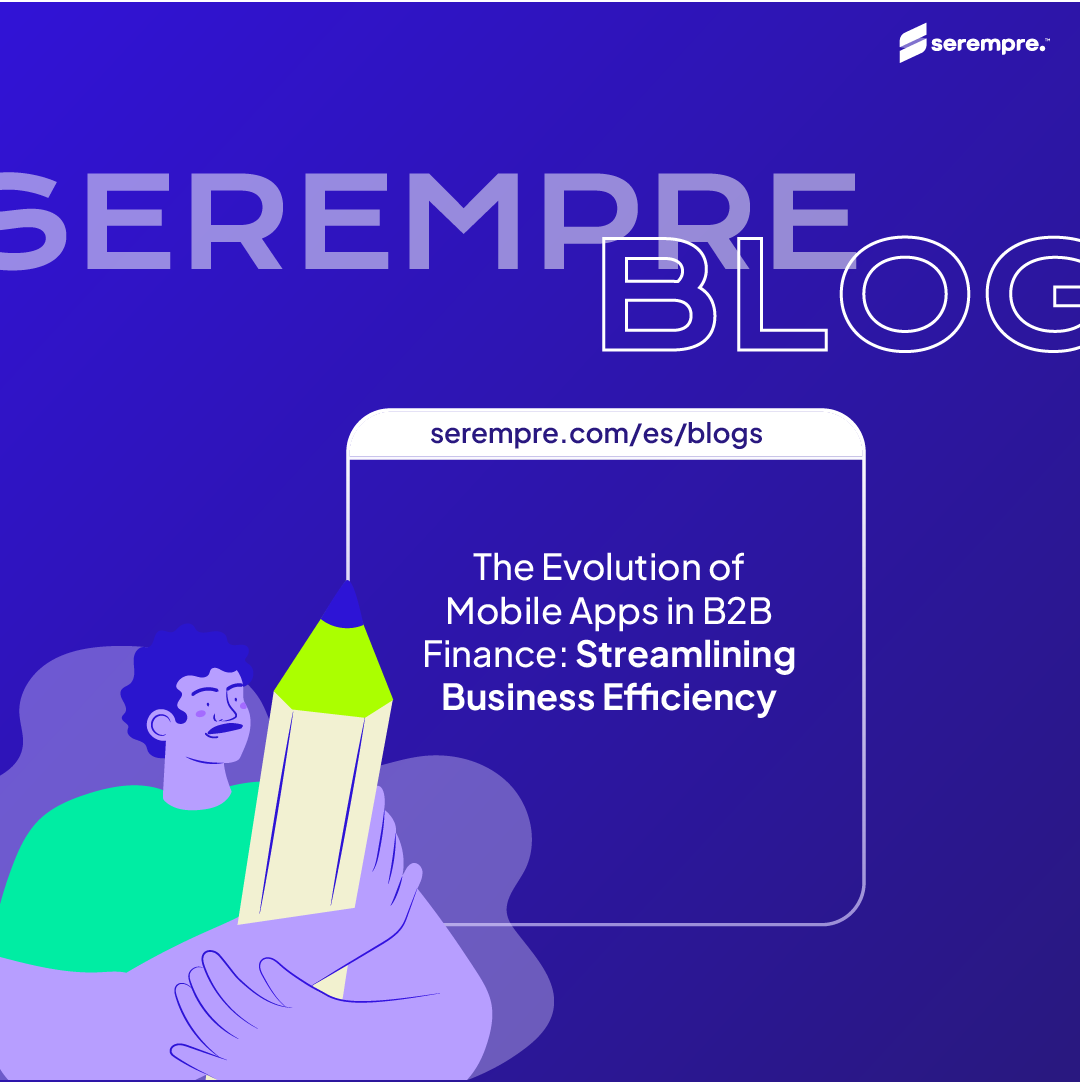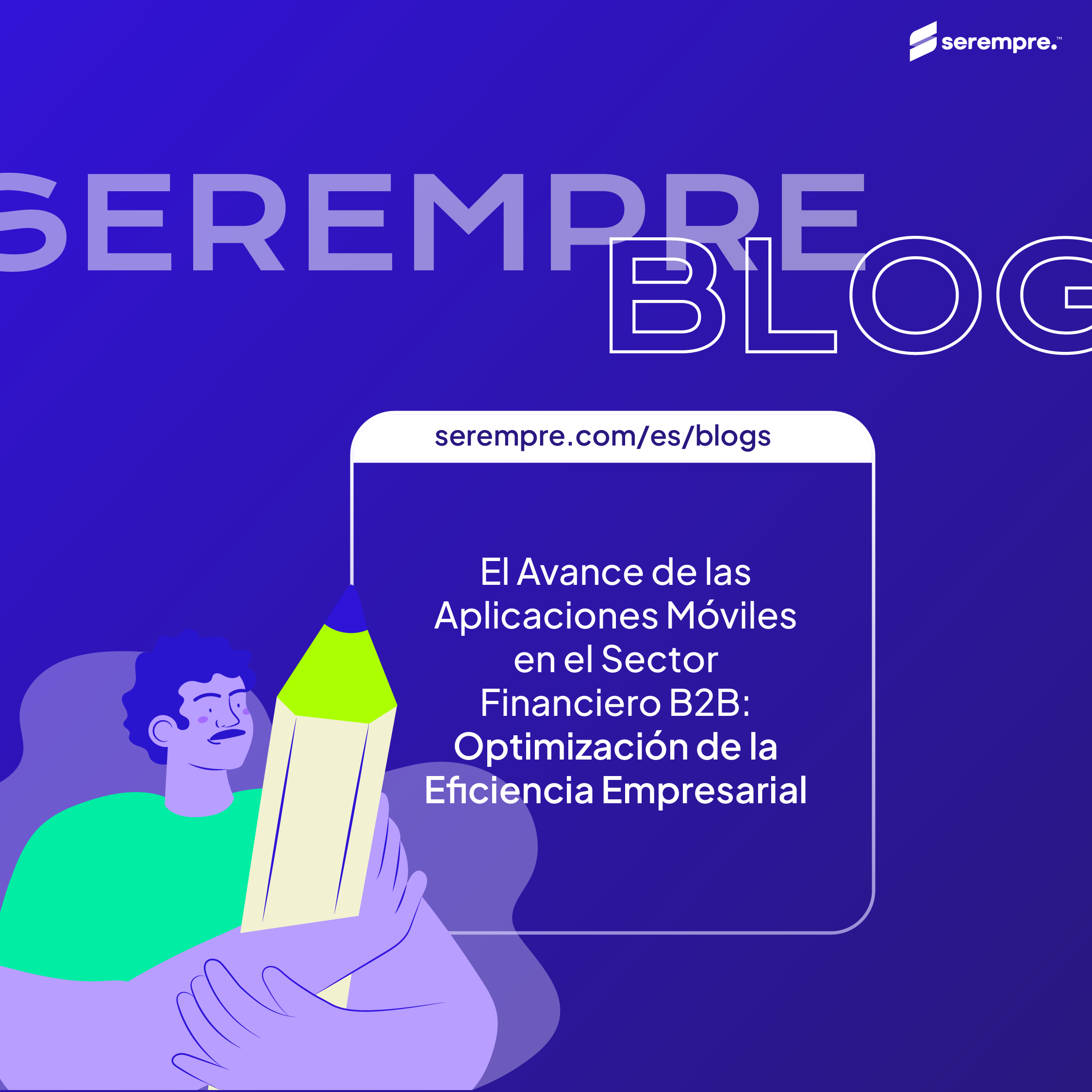
The B2B financial sector is undergoing a significant transformation driven by the advancement of mobile applications. In this article, we will explore how these applications optimize business efficiency in the financial sector and how companies leverage this technology for success.
The Decisive Impact of Mobile Applications in the B2B Financial Sector
1. Real-Time Access to Information: Mobile applications allow businesses to access critical financial data in real time, facilitating informed decision-making and risk management.
2. Process Automation: B2B financial sector mobile applications automate routine tasks such as invoice and payment management, saving time and resources.
3. Improved Communication: They facilitate communication among stakeholders, such as suppliers and customers, through notifications and instant messaging.
4. Data Security: Mobile applications implement advanced security measures to protect sensitive financial information, which is crucial in the B2B sector.
Key Features for B2B Mobile Application Development
Here are some features found in mobile applications targeting the business audience:
- Integrations with other applications for enhanced versatility and functionality.
- Custom user groups that allow for a more focused and personalized experience for different customer segments.
- Data analytics capabilities to gain valuable insights and make data-driven decisions.
- Support for presenting content in various formats such as blogs, videos, and more for effective communication.
- Option for social media account login for a streamlined user experience.
- Offline capability ensuring app usefulness regardless of internet availability
- Push notifications to keep users informed and engaged.
Relevant Data on Implementation
- Mobile Banking: Global neobank revenues were estimated at $6.8 billion in 2021, an 88% increase from the previous year.
- Data up to 2021 reveals that two-thirds of adults worldwide conduct or receive digital payments, with the proportion in developing economies rising from 35% in 2014 to 57% in 2021.
- Real-time B2B payments could take off: Deloitte expects real-time transactions in the United States could tap into a potential market of $12 trillion in global business-to-business (B2B) check-based transaction volume by 2028.
- According to Deloitte, generative AI increases investment banking and financial services productivity by 25%. The prospective outcome could lead to an extra $3 million in revenue per front-office employee by 2026, compared to an average of $11.3 million during 2020-2022.
- Tailoring financial and general service apps can enhance mobile sales engagement, ultimately driving revenue growth for app owners. Personalization alone can increase revenue by up to 15%.
- Around 70% of young people use mobile apps for basic financial operations.
Key Processes Optimized by Mobile Applications in the Industry
Financial Analysis Applications
These apps provide businesses with tools to analyze financial data, forecast trends, and make strategic data-driven decisions.
Efficient Payment Management
Thanks to mobile applications, businesses can efficiently send and receive payments, streamlining and simplifying commercial transactions. These apps provide smoother cash flow and enhance the experience for both customers and the company itself.
Online Selling
B2B marketplaces like Alibaba and Conrad are experiencing significant growth. At present, merely 7.5% of online transactions occur via B2B marketplaces; nonetheless, this figure skyrocket to $12 trillion by 2024, potentially resulting in total sales of $3.6 trillion that year.
Advanced Financial Data Analysis
Mobile apps facilitate the analysis of financial data by providing interactive tools and charts that allow businesses to identify trends, patterns, and improvement opportunities in financial management, helping to make more informed and agile strategic decisions.
Credit Risk Management and Assessment
In the financial sector, assessing and managing credit risks is essential. Mobile apps provide functionalities that aid in assessing customer creditworthiness, overseeing credit limits, and tracking payments, thereby safeguarding the financial well-being of the enterprise.
Business Payment Applications
Instead of relying on traditional methods like checks or bank transfers, B2B businesses prefer mobile payment applications, enabling faster and more secure transactions.
A notable example is the growth of mobile money transactions in emerging markets, expected to exceed $2 trillion by 2027. This research highlights emerging opportunities in Latin America, particularly microfinance, microloans, and money transfers.
Regulatory Compliance and Simplified Documentation
Complying with financial regulations is a top priority in the industry. Mobile applications allow companies to maintain a comprehensive and organized record of the documentation required for regulatory compliance. Additionally, they streamline the tracking and reporting process necessary to ensure regulatory compliance.
Successful Mobile Applications in the B2B Financial Sector
1. Stripe: This online payment platform offers a mobile application that allows businesses to manage payments and transactions efficiently.
2. QuickBooks: With its mobile app, QuickBooks provides businesses with tools for managing their finances, including accounting and expense management.
3. PayPal: PayPal's mobile app simplifies payments and money transfers between businesses and customers.
4. SAP Concur: Specializing in expense management, this mobile app helps businesses control and optimize their expenses.
5. Asana: A mobile project management app that allows businesses to plan, assign tasks, and track projects efficiently.
6. Salesforce: It offers a mobile app that enables businesses to manage customer relationships, sales, and marketing from mobile devices, improving customer management efficiency.
The Promising Future
As the B2B financial sector increasingly integrates mobile applications, it is poised to elevate operational efficiency and enhance decision-making capabilities. Priorities for development include data security, automation, and real-time accessibility. Organizations that embrace this technology will gain a competitive edge in the dynamic business landscape. Mobile applications are not merely a trend but an indispensable asset in the B2B financial realm.
Our comprehensive Mobile Development approach includes:
- Analysis and planning.
- User interface and user experience design.
- Application development.
- Testing and quality assurance.
- Launch and monitoring.
Catering to companies across various sectors, we offer expertise and versatility in mobile application development for iOS and Android. Our user-centric approach and quality control ensure the success of your project.
For more details on how Serempre can drive the development of your business projects through mobile solutions, learn more, and initiate contact with us, click here.
We are ready to help you achieve your goals! 🚀


